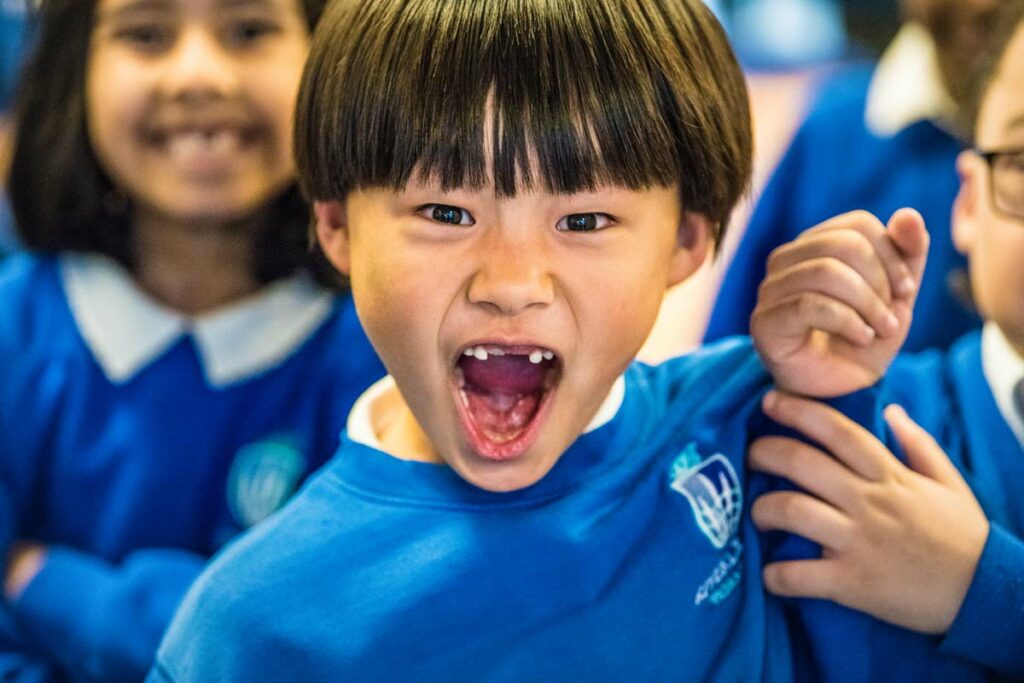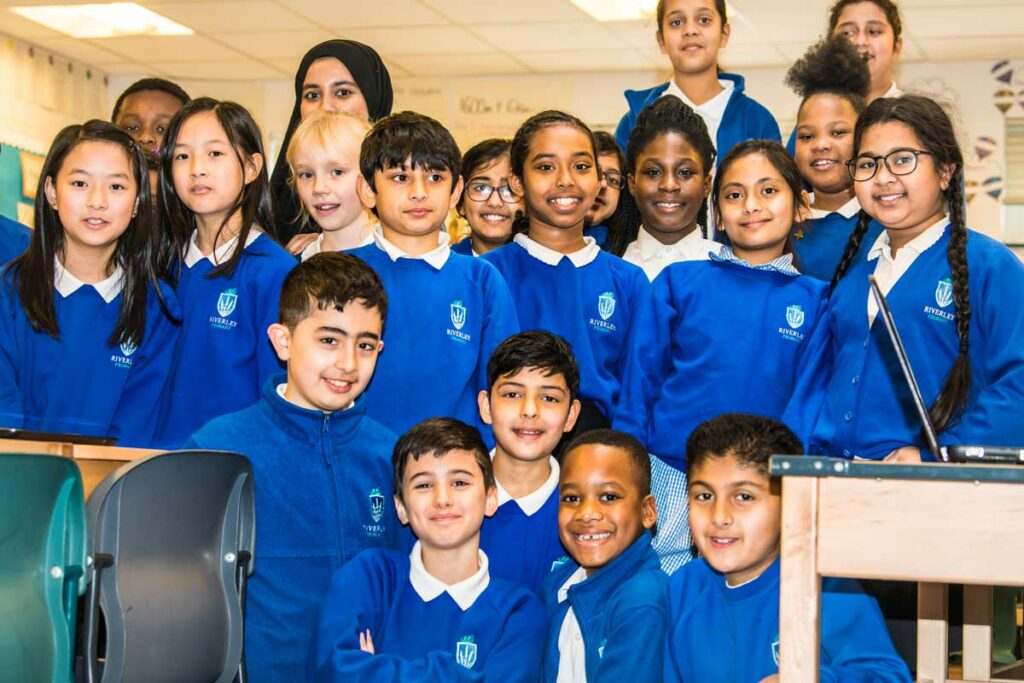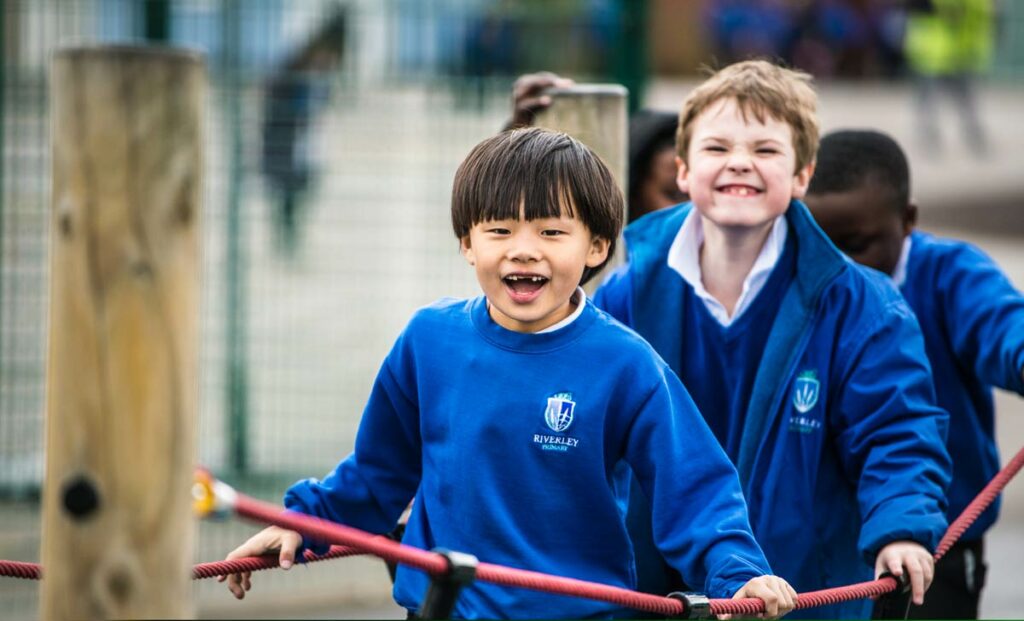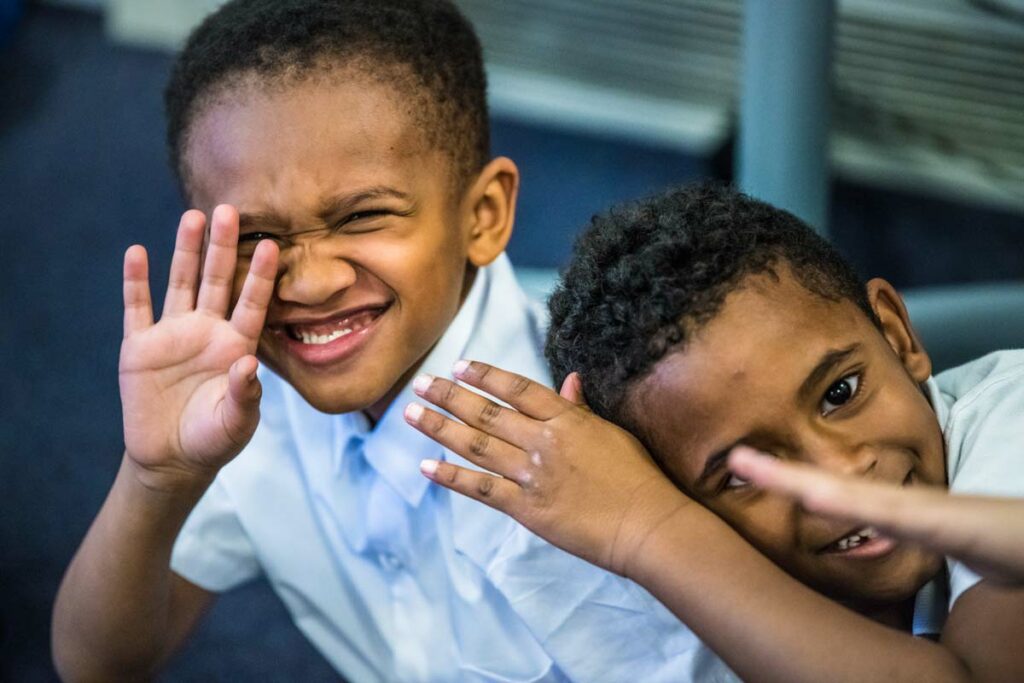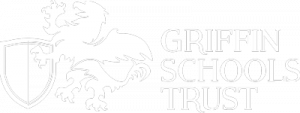>> ENGLISH
Intent
At Riverley Primary School, we have designed our English curriculum with the intent that all children, regardless of background, will become fluent, insightful readers and technically skilled, creative writers. Our children will engage with a range of genres linked to their overarching topic, immersing them in their learning for an in-depth learning experience. We have developed a curriculum that will instil, in all children, a love of reading and writing that we hope will stay with them for life. Writing is purposeful and incite curiosity and creative and critical thinking who delve deep into themes from quality texts. Our children seek challenge as they explore and consciously choose their vocabulary and imagery when writing promote meaningful discussions around the desired impact our writing has on our audience. We understand the importance of Reading for Pleasure, so we have created an environment to enthuse enjoyment out of reading to inspire life-long readers. Our children flourish as they explore their creativity and run wild with their imagination through writing and performance. ‘Big questions’ are a key aspect of our learning which encourages our children to think critically, yet respectfully, at themes and ideas expressed within our texts, being self-reflective and continuously making links and building upon their prior knowledge. A good grasp of English is the bedrock of the entire curriculum and that, children who are confident and adept readers and writers, will be empowered to succeed in all other areas of the curriculum. As facilitators, we give children a wealth of experiences to ensure our children’s learning experiences are purposeful and meaningful. We understand, too, the vital role played by our families in the development of reading and writing and in the nurturing of positive habits, particularly in attitudes towards reading. Therefore, we want to encourage a home-school partnership which enables parents and carers to understand how to enhance the skills being taught in school. We welcome this and value their contribution.
We will deliver an English Curriculum that:
Develops in all children a love of reading, writing and the dramatic arts.
Nurtures in all children the ability to express themselves clearly – verbally and in writing; to develop their word choice when speaking and to encourage accurate grammar when speaking in order to aid self-expression.
Allows children to comprehend and critique what they read, and to write creatively and accurately regardless of genre or topic.
Encourages children to be reflective, motivated and resilient learners.
Offers a rich variety of experiences, inside and outside of the classroom.
We will, from Foundation to Year 6, develop children’s vocabulary, allowing them to comprehend others and to express themselves clearly and poetically.
We will provide a curriculum that values the dramatic arts as a means of developing confidence and the ability to express oneself with confidence.
We will develop children’s grammar so that they have a good understanding of the mechanics of spoken and written English. Our aim is that this will allow them to write clearly and accurately regardless of genre.
Phonics will be taught progressively from Foundation to Year 2 as an effective way of developing children’s reading and spelling skills. Sight-recognition of words will complement the teaching of phonics.
The teaching of spelling will be taught across the school in a progressive way allowing children to learn spelling rules, exceptions and irregular spellings.
The teaching of handwriting will be taught to develop legibility and to encourage all children to take pride in the presentation of their work, regardless of discipline and ultimately develop their own unique style.
Children will be given the opportunity to read and write a variety of genres: different fictional styles, poetry, non-fiction. They will learn to adopt the appropriate tone and ‘voice’ to portray characterisation, atmosphere and to suit the genre, considering the impact their writing has on the reader.
Children will be encouraged to reflect upon their writing, edit and improve respectfully and critically.
When reading, children will be taught to read with fluency and feeling. The curriculum will develop their ability to comprehend and critique different texts.
Implementation
The English Curriculum is led and overseen by the English Curriculum Lead, in conjunction with the Early Reading Lead. They will regularly evaluate and review English teaching and learning, celebrating and sharing good practice. Formative assessments will be integrated into every day English teaching to ensure teachers have an in-depth knowledge of the children’s learning and to inform their next steps. The National Curriculum and the Early Years Foundation Stage statuary framework will provide the basis of the English curriculum which is then tailored to meet the learning and developmental needs of the children in school.
Our environment plays a huge part in promoting a love of reading. Areas around the school are devoted to promoting safe and comfortable environments for the children to read for pleasure, escaping to a world of fantasy and fiction. Our children read daily, discussing stories and themes together, performing individually and as a chorus and developing a thirst for knowledge with every page read.
All planning will be informed by two fundamental, complimentary tenets: 1) to develop technical skill and 2) to develop enjoyment of reading and creativity of writing. Teachers will plan English around a quality text linked to their topic and follow a progression of skills which will allow children to build upon prior knowledge and understanding, as well as the teaching sequence for writing that focuses on the process of writing and purpose, ensuring that the reader is at the forefront of every piece. Teachers will develop their knowledge of children’s literature and ensure that children are exposed to a wide variety of different, high-quality texts. Children will be exposed to classics as well as to lesser-known works of literature from around the world, representing a diverse range of authors and writers allowing our children to see representation that reflects the wonderfully diverse community we live in. Drama and role play will encourage children to develop their oracy skills. Children will be presented with opportunities to share their work with the wider school community and with parents. Partnerships are vital for us in exposing children to a vast array of opportunities and experiences. Each year, our specialist teachers and partnerships offer Shakespeare exploration, one of our Proud Traditions, with an intent to keep classics alive, delve into the mind of a literary mastermind and perform high class productions, striving for excellence and developing their confidence, oracy skills and performance.
Impact
Our English Curriculum should ensure that:
Children leave Riverley with a love of reading. They are able to reference and enjoy a wide range of different authors, from different literary traditions and genres.
Children leave Riverley with a love of writing. They should be able to express their opinions and their creativity in writing that is well structured, clear, technically accurate and interesting to read.
Children leave Riverley able to express their opinions verbally; to understand how to engage – and disagree – with others clearly and articulately.
Children leave Riverley having made the best possible progress as a result of consistent, Quality First Teaching and (where appropriate) additional interventions.
Children leave Riverley confident to try new things, experiment with their writing, take risks, and continue to expand their experience of reading.
Children leave Riverley feeling that their efforts were valued and their opinions heard. That they have had a chance to find their ‘voice’ and were encouraged to use it.

